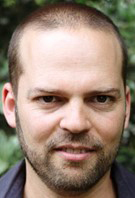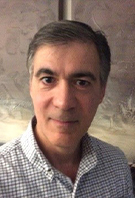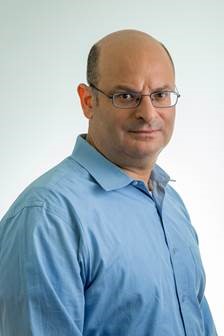This webinar will discuss the impact of affordable de novo genome assemblies on crop research. De novo genome references are critical to understanding plant biology and unlocking the potential of genomics for cutting-edge plant breeding in agriculturally important species. However, assembling quality references from sequencing data can be a costly, complex, and time-consuming process. In this webinar, Assaf Distelfeld from Tel Aviv University, a world leader in wheat genomic research, will discuss recently generated genome assemblies of wheat progenitors, and how this new resource can help solve biological questions and improve wheat breeding. In addition, representatives of NRGene, Illumina, and the University of Illinois at Urbana Champaign will detail how their technology and services helped make this project happen, and others like it. The recent decrease in short-read sequencing costs and increased read lengths on the Illumina Novaseq sequencer and SP flow-cell, combined with NRGene’s accumulated experience in wheat genomics and bioinformatics, resulted in a more than 50 percent reduction in project cost. These innovations make de novo sequencing more accessible and affordable for researchers than ever before, without compromising genome assembly quality.
Speaker:

Professor Assaf Distelfeld
School of Plant Sciences and Food Security TAU
Institute for Cereal Crop Improvement (ICCI) TAU
Assaf Distelfeld graduated from the University of Haifa in 2006, and continued to postdoctoral training with Jorge Dubcovsky at the University of California, Davis. In 2010 he established hislab at Tel Aviv University focused on the study of wheat domestication with an emphasis on physiological processes such as grain maturation and acquisition of nutritional qualities. Dr. Distelfeld's laboratory and collaborators in academia and industry have influenced wheat genomics by using an innovative approach for the sequencing of wild emmer wheat. This has led to the sequencing of domesticated wheat using their strategy. The laboratory now focuses on exploring these genomic resources to study wheat domestication and reveal the regulatory mechanisms that enabled wheat to become one of humanity's most important crops. The research in the Distelfeld lab will be instrumental in the development of better yielding crops together with resistance to biotic and abiotic stresses.

Alvaro Hernandez, PhD
Director, of DNA Services
University of Illinois at Urbana Champaign
Alvaro Hernandez is the Director of DNA Services at the University of Illinois at Urbana Champaign, where he leads a team of scientists with expertise in all aspects of next-generation sequencing. He joined the High Throughput DNA Sequencing laboratory at UIUC in 2001 and became director of the facility in 2008. He has worked with next-generation sequencing technologies since their inception and has particular expertise in processing of DNA and RNA samples for NGS.
He holds a DVM degree from the University of the Republic, Uruguay; an MSc in Animal Reproduction from the Federal University of Santa Maria, Brazil; and a PhD from the Department of Animal Sciences at the University of Illinois at Urbana-Champaign.

Guy Kol
VP, R&D & Products
NRGene
Since co-founding NRGene in 2010 together with Dr. Gil Ronen, Guy has served as the company’s vice president of R&D and products. During that time Guy was responsible for the development of NRGene’s genomic analysis platform and for its product line and strategic customers worldwide. Guy was previously the head of bioinformatics at Evogene, responsible for developing a GM gene discovery platform that was used to license genes to large seed companies. Prior to that Guy worked at Compugen as strategic project manager responsible for the technical aspects of the company’s strategic collaborations with large pharmaceutical firms regarding the use of human alternative splice forms of genes as drug targets.
Guy has a BSc (computer science and biology) from the Hebrew university in Jerusalem and an MSc (human genetics) from the university of Tel-Aviv.

Kahlil Lawless
Agrigenomics Segment Manager, Americas
lllumina
After graduating from Victoria University of Wellington in New Zealand in Biomedical Science, Human Genetics, and completing a scholarship on type 1 diabetes mellitus at the John Curtin School of Medical Science, Kahlil made the switch to Agricultural Genetics as a Research Scientist at the Victorian Agribiosciences Centre, conducting mapping, gene expression, and gene discovery projects for crop and pasture improvement. Kahlil is now the Agrigenomics Segment Manager for Illumina, working to support implementation of microarray and next-generation sequencing technology in agricultural research and applied testing across the Americas.
Registration Questions:
Gal to send layout
詳細
Fill Out Form to Access Webinar
ご提供いただいた個人情報は、お客様へのサポート、サービス、および販売活動の目的にのみ使用させていただきます。
- 日時
- 2019/07/18
- Location
- Japan
- Asia
- Topic
- Agrigenomics